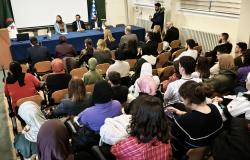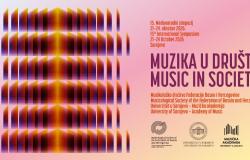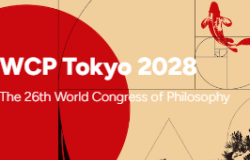University of Sarajevo Re-Accreditation Process Successfully Completed

On 10 September 2019, the Ministry of Education, Science and Youth, Sarajevo Canton issued a Decision on Institutional Accreditation of the Higher Education Institution University of Sarajevo. On 19 September 2019, pursuant to this Decision, the Agency for Development of Higher Education and Quality Assurance of Bosnia and Herzegovina adopted a Decision on Entering the “University of Sarajevo” into the State Register of Accredited Higher Education Institutions in Bosnia and Herzegovina.
This was preceded by the following activities:
On 18 March 2019, the University of Sarajevo submitted to the Ministry of Education, Science and Youth, Sarajevo Canton a request for institutional re-accreditation, which was forwarded by the Ministry to the Agency, in accordance with the prescribed procedure. On 15 May 2019, the Agency appointed an Accreditation Experts Commission consisting of five members, two academic community representatives, one international expert, and economy and practice representative, and a student: Prof. Dr. Sead Pašić, President, Prof. Dr. Dejan Bokonjić, Prof. Dr. Dražan Kozak, Boris Ćurković and Amer Mujičić.
From 12 to 14 June 2019, the Commission conducted the external evaluation procedure at the University of Sarajevo and drafted an External Evaluation Report. The report served as a basis for Agency’s sending to the Sarajevo Canton Ministry of Education, Science and Youth the Recommendation for the Accreditation of the University of Sarajevo on 2 September 2019. On the basis of this Recommendation and the prescribed conditions, on 10 September 2019, the Ministry issued a Decision on Institutional Accreditation of the Higher Education Institution University of Sarajevo, thus successfully completing the University of Sarajevo’s re-accreditation process.
From an organizational point of view, the University of Sarajevo is a large and complex public institution whose basic structure today consists of thirty organizational units: twenty-five Faculties and Academies and five Institutes, full University members, internally organized within six Councils of science/arts Groups from fields of social, Humanities, medical, technical, natural-mathematical and biotechnical Sciences and the Arts.
The University is striving to be an autonomous academic community of teachers-researchers, artists and students, incorporated into the international university and academic community.
The University seeks to continuously strengthen its role as a responsible institution within the community in which it operates, and to ensure the role of a recognized center of scientific and artistic activities bringing together teams of local and international experts and artists on projects relevant in the domestic, regional, and wider social context and environment.








